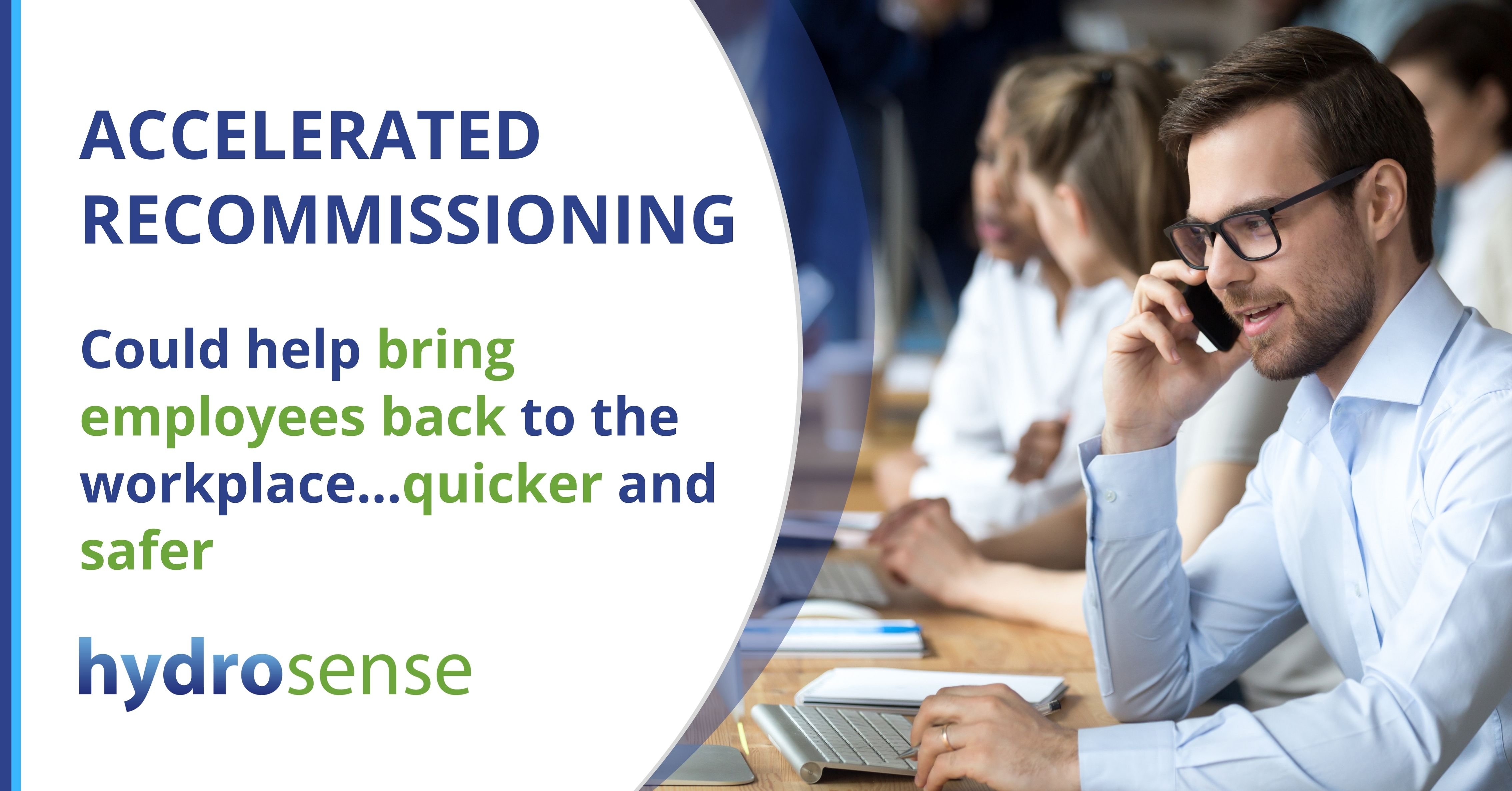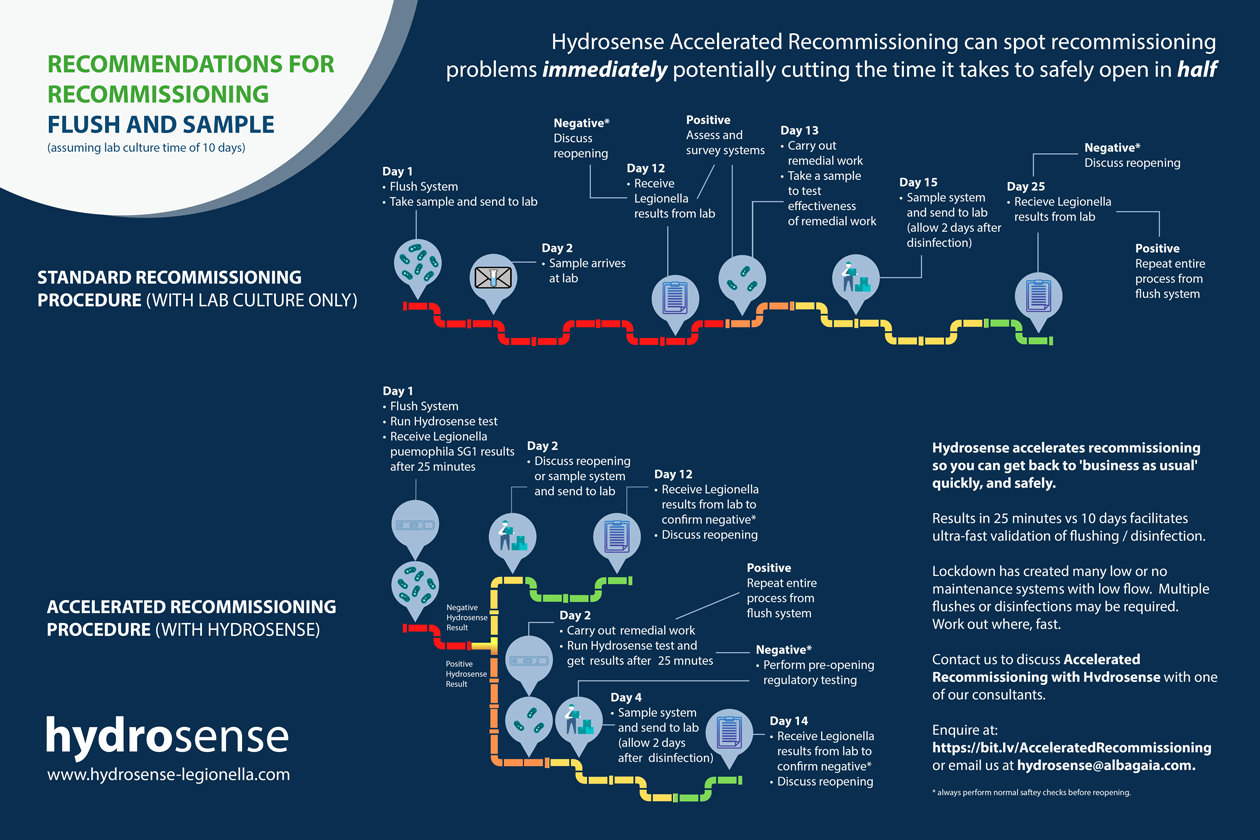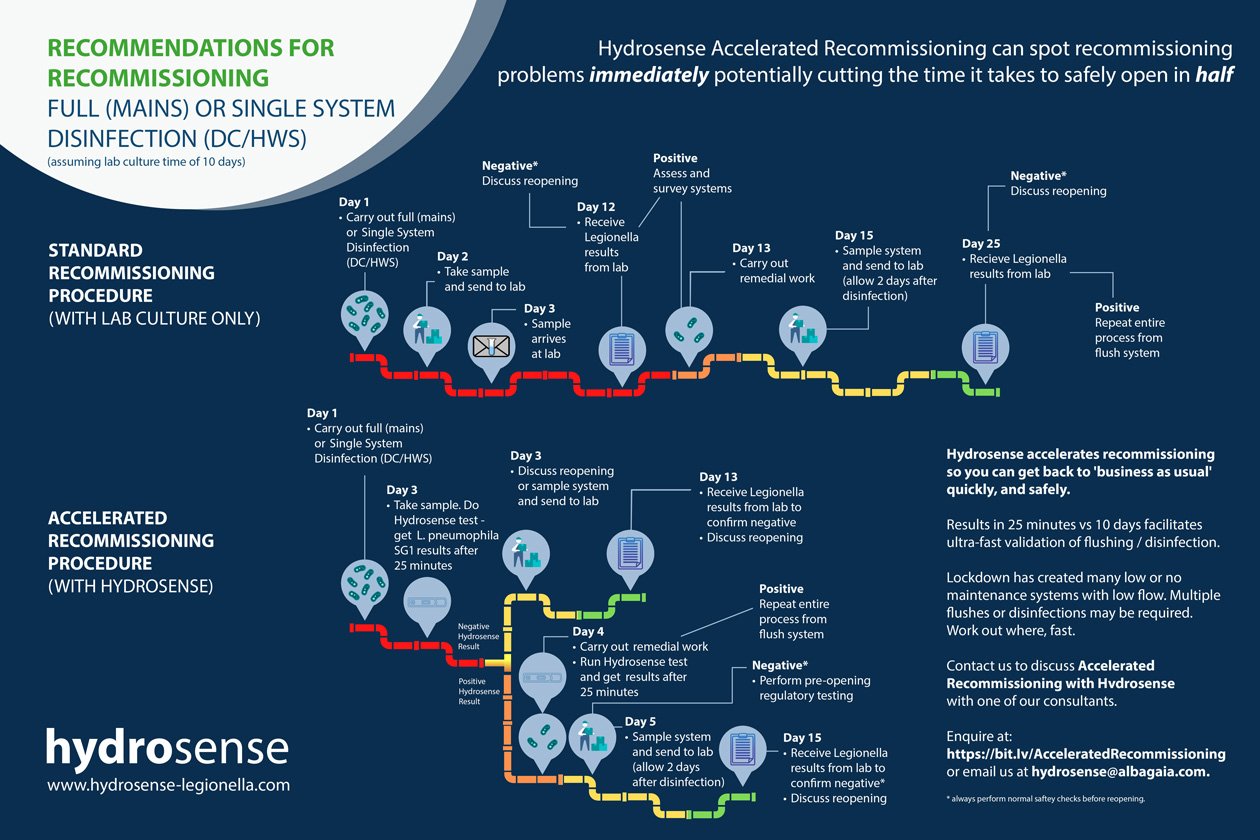
The UK Government has lifted the "work from home" directive for England, encouraging employees to discuss with their employers when it is safe to return to the work environment. Other countries may be preparing to or have already begun their plans to get back to more traditional workplace set up.
This is great news for collaboration, social engagement and general wellbeing but returning to an environment which has had limited or no occupancy for long periods will pose a risk to employees.
So, are businesses ready to welcome their employees back safely?
Public health and water management professionals have previously highlighted concerns about the threat of Legionnaires’ Disease in workplaces, especially where water systems have had low flow due to under-occupancy, have not been maintained whilst their employees work from home or where decommissioning has not been carried out properly.
Buildings that have remained empty with static water systems, or those where flushing frequency does not represent normal usage, recommissioning their water system will be essential. Even those where flushing frequency represents normal usage additional control measures may be needed due to the below risk considerations.1
System stagnation
- Triggering bacterial growth
- Water system degradation
- Encouraging the build up of biofilm
- Corrosion
Rushed building closure
- Ineffective closure plans
- Lack of process and resource to maintain water systems
Thermal gain
- Hot water and heating systems creating thermal gain within cold water systems
- General heat gain in buildings with large external areas of glass due to solar gain
- Air conditioning being switched off
- External local water network temperature increases (office parks)
Non-water system items
- Humidifiers filled from cold water outlets
- Water dispensers
- Vending machines
- Pre-existing medical conditions makes employee more vulnerable
- COVID-19 (viral) can make people more susceptible to Legionella (bacterial)
Getting employees back to their place of work quickly and safely will require recommissioning to be carried out without delay, to avoid serious Legionella outbreaks. Traditional laboratory culture methods of Legionella testing can take several weeks to get a result, potentially delaying the moment employees can be invited back.
Accelerated Recommissioning with Hydrosense
Hydrosense Ltd consulted with global water management professionals to discuss how long the recommissioning process takes.
They report when carrying out the process with lab culture only, two rounds of flushing and sampling could take 25 days.
However, when the Hydrosense rapid antigen test was used, two rounds of flushing and sampling would take just 14 days.

That time saving is just as dramatic when looking at a full mains or system disinfection.

The Hydrosense timelines for accelerated recommissioning does not include the time needed to carryout normal safety checks before re-opening. Check your local legislation or guidance to see what safety checks are needed in before re-opening.
Hydrosense's rapid water and swab tests give companies peace of mind quickly when testing for Legionella. If a negative result is delivered business leaders will be safe in the knowledge that their business environments are not exposing their employees to potentially deadly Legionnaires' Disease. And, if a positive result is found, they can take the required action immediately to reduce the risk.
VBNC Legionella (Viable but Non Culturable - a dormant form of Legionella which can re-infect once conditions become viable) should also be considered. Did you know that the traditional laboratory culture method cannot detect VBNC Legionella?
There have been past cases where Legionella has lay dormant in systems for up to 2 years before reinfecting the system. Hydrosense does detect VBNC Legionella giving a higher standard of water management and mitigating against future potential infections.
We advise companies to be proactive, go beyond box ticking and keep employees safe - integrate rapid testing methods into water quality plans.
If you need to accelerate your recommissioning contact us today.
CASE STUDY - Surevent UK Ltd
Surevent Ltd was asked to recommission 300 mothballed sites for one of the UK’s largest mobile and broadband service providers. With only 2 weeks to carry out the necessary testing, disinfection and flushing to get the stores ready for re-opening speed was key. Hydrosense was used as part of their recommissioning process to help with any delays.
“Hydrosense gave us the edge with a faster turn-around time and allowed the building to be opened faster and more safely.” - Paul Abbott, Surevent UK Ltd.

